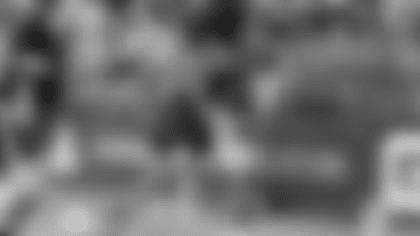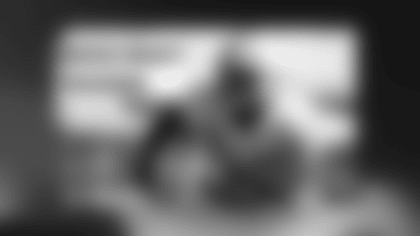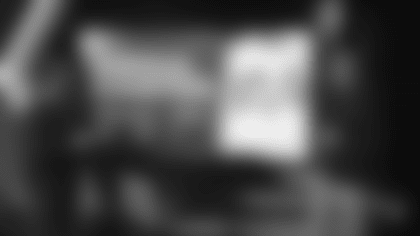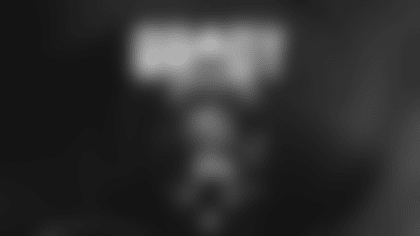New England Patriots head coach Bill Belichick addresses the media during his press conference at Gillette Stadium on Sunday, August 23, 2009.
BB:We're back at it here. We spent yesterday, as a staff, trying to recap not only the Cincinnati game, but where we're at here after all of our practices and meetings. [We're] kind of trying to look at things going forward with our football team and start getting ready for Washington. So we have a lot of balls in the air here. We know the opener is a couple weeks away, too. So [there are] a lot of balls in the air, trying to balance everything with our team, our practices, preparation for the Redskins, certainly with an eye on the opening part of the season. I think this, again, is another important week for us in our development as a team on all the different fronts. It's a little bit of a longer week. We have an extra day so hopefully we can take advantage of that and keep moving forward as a football team. That's where we're at.
Q:In the wide receiver competition, how much of a factor is special teams return ability, blocking ability come into play when you get down into those last couple of spots?
BB:Well, special teams is an important part for every position. We look for contributions from really all of our players in the kicking game. We know that our offensive and defensive linemen are limited with their overall speed and range just because of the nature of those players - for the most part - to the field goal and field goal rush teams. Everybody else - the quarterbacks come into play on that - so I think it just helps any player; the more things he can do, the more he can contribute in different areas, the more valuable he is to the team. We have other players that don't contribute too much in other phases. They either primarily contribute in special teams or primarily contribute on offense and defense. In those cases, those players need to really excel in those areas if they are not going to have multiple responsibilities. In the end, it's a combination and a balance of trying to bring all those together. We can't have too many people who don't have versatility. We can't have too many people that are versatile that don't really excel at a certain thing so it's a combination of all those. As I said, in some cases we have players that are primarily special teams players and we have other players who are primarily offensive and defensive players, but still have roles in the other phases of the game. It's all of that collectively coming together and that's part of the hard decision-making that we have to do as a staff.
Q:How's Randy Moss looked this summer?
BB:Randy, he's been great. He's had a good offseason, a good spring.
Q:One of things that Kevin Faulk talked about is that Randy gets overlooked a little bit. He said that Randy has worked with the younger guys on how to catch the ball and when to put their hands up. Have you seen any of that from him?
BB:Oh yeah, absolutely. Randy's very good with the younger players and even he and Tom [Brady] are always talking and the other receivers, Greg [Lewis], Joey [Galloway] and Wes [Welker]. They talk a lot about different techniques and how a certain defender plays and how to play against him - those types of things. Again, I think that was reflected last year when Randy was elected captain, not because of his playing ability, but because of his leadership and the way he interacts with his teammates and supports [them] - not just the receivers but also the defenders. They talk about it, too. They have a good working relationship with each other about, "This is what I'm trying to do to you and this is how I'm trying to defeat it,' and help each other get better and ultimately that helps them get better. If our receiver tells our defensive back, 'Hey, this is what you're doing that's giving me trouble or what you're doing is making it easy for me,' and the player can improve on the other side of the ball, ultimately, it improves him. It's a healthy relationship and it's one that we try to encourage. I think we get a lot out of them. Players are good about that. They are good about helping the younger players, but they're also good about working with each other on different strengths and weaknesses and techniques that can be beneficial to our team.
Q:What are the similarities and differences between Vince Wilfork and Albert Haynesworth?
BB:You know I've never coached Albert [Haynesworth] so I've never been on the field with him directly. I don't know if I could make that comparison.
Q:When you look at Albert Haynesworth on film, aside from the fact that they are both great at clogging up the middle, do they have similar or more different game styles?
BB:Oh, I mean, they are both outstanding players. They have played in different systems and when one guy's asked to do something and another one isn't, it's hard to say what would it be like if they were both asked to do the same thing in the same system. So that's really a comparison that I can't make. But they are both big, move well, good quickness, explosive guys, and they are both real good players.
Q:You talked a lot about fundamentals being a big focus. With Tom Brady specifically, where are his fundamentals compared to where they've been. Are they getting better and have you seen them progress?
BB:I think, yeah. All of the player's fundamentals are improving and we still have a long way to go. We've only been doing some of this for three weeks and then [those] three weeks, how many times have we done certain things? Some more than others. So it's constantly a battle to improve techniques and also stay on top of the ones that we are using. It's like Tiger Woods; the guy spends 13-14 hours on the range when he's not playing. Well, what's he working on? It's not like he's not a good golfer, but there are still things that he can work on in his game. I think if Tiger Woods can spend 14 hours on the driving range, we can spend time on the techniques we're doing. That's what you're doing; you're trying to perfect your craft. That's what every player's doing. Nobody's ever there; everybody's always working to get to a higher point - Tom [Brady] and everybody else. That's what we're all doing.
Q:How has Myron Pryor been doing so far and what are some of his strengths?
BB:I think as I said earlier in camp, Myron [Pryor] comes from a pretty good defensive background at Kentucky with Coach [Rich] Brooks. He's a pretty good fundamental player. He understands leverage and hand placement. He's a good athlete. He's done different things in college than we've asked him to do here. He's having to learn some new things, new responsibilities, different reads and things like that that we do. He's picked those up and like every rookie. He's got a long way to go, but he's coming along. He's making good progress. There're a lot of things that he's got a good background in and he's a pretty athletic guy for the 300-and-15, -20 pounds that he is. He moves pretty well for that size.
Q:They showed Josh McDaniels on TV last night on the sidelines wearing a sweatshirt with the sleeves rolled up. Did you offer any fashion advice to him?
BB:We spent a lot of time on that.
Q:He didn't go cut. He just rolled them up.
BB:Yeah, he's probably trying to make his own statement then.
Q:With veteran guys who return punts like Kevin Faulk and Wes Welker, do you feel like you need to get them reps doing that during the exhibition season or do you just trust in them that when you need them to do that during the season because they've gotten reps in practice and throughout their career that they can step in?
BB:I think you could do it either way. I think you could make a case for both and, definitely, if you want to look at somebody else doing it, there are only so many punts. So we had Julian [Edelman] catching punts, something he hadn't done in college, but that we think he had an ability to do. Well, he probably needs all the ones he can get. When we've had experienced punt returners like Troy Brown, Kevin [Faulk], Wes [Welker] and players like that, I don't think they necessarily need to catch that many. One more punt for them - they catch them in practice, they catch them in the drills, they catch them in situational punting that we do inside the 50 and things like that so it's not like they're not working on those things. One or two more punts in a preseason game, is that what they need? I don't know. It probably doesn't hurt. I don't know if it's an absolute necessity. [It] kind of depends on the situation. Certainly, we could do it with them, but if we didn't do it with them I wouldn't say that means they wouldn't be ready for the season. I certainly wouldn't say that.
Q:You announced that tight end Tyson DeVree was released. Was that a numbers thing? Why now?
BB: Well, we just felt that given what all the circumstances are and his particular situation that this is probably the right thing to do for him and the team.
Q:How do you feel with the overall competition at tight end? I think you said at the beginning of camp that it's the best you've had since you've been here?
BB:I would say it's the best we've had. I think it's been good. I think Chris [Baker] has really shown that he can adapt to our system and he's done a good job, really, in all the areas. Benjamin [Watson] has missed a little bit of time, but he's performed in the opportunities that he's had and we've certainly seen him over the last few years. Dave [Thomas], even though he was here last year, I think he still is improving, over the course of last year and this year combined. Athletically, he looks more like he did his rookie year in terms of quickness, speed, explosiveness out of breaks and things like that. Alex [Smith] is a kind of combination of a couple different guys. He's a bigger guy. He's more of a presence on the line of scrimmage. He's a pretty athletic guy that can run and be a factor down the field in the passing game, too. I think each player has a little bit of their individual strengths and weaknesses, but I think Chris in particular has come in and done a good job in all areas that we've asked him to work in and, as a tight end, there are a lot of responsibilities that go with that: run blocking, pass blocking, route running, route adjustments, deep routes, short routes. They kind of have a little bit of everything and they are involved in most of our formationing. We change formations quite a bit and certainly the tight end is the key component of that. [With] all the different alignments that they have to work from, there's a lot involved there. So I think he's done a good job of picking that up, as has Alex and, of course, Dave and Benjamin have had more of a background in that. But I think the two new players - we haven't had many mental errors and alignment problems and stuff like that, which there's potential for that.
Q:[On Coach Belichick's relationship with Jimmy Johnson]
BB:Well, my relationship with Jimmy [Johnson] goes back to when I was the Head Coach at Cleveland and he was in Dallas. I was in the AFC; he was in the NFC. So we weren't in direct competition. It could have been more direct, let's put it that way - not that we weren't in competition - but it could have been more direct. We were able to work out some trades and help each other out in some different situations during that time. Then, after he left Miami, he was a guy that when I was in Florida, [I] connected with and we spent some time together and he's really been helpful. He's done this job; he's been a head coach. He's been in a lot of big games. He's coached a lot of good players. He's been in a lot of situations that NFL coaches, like myself, face from time to time. I asked him a lot of questions. He was very open with his responses and advice and how he handled situations and things like that. So I enjoyed talking with him and going fishing with him, relaxing on his boat, all those kind of things. It's kind of a good trade off, I guess: go down to Florida, hang out with Jimmy, catch some fish, relax, get a lot of good advice. I don't know what he got out of it, but it was good for me.






































